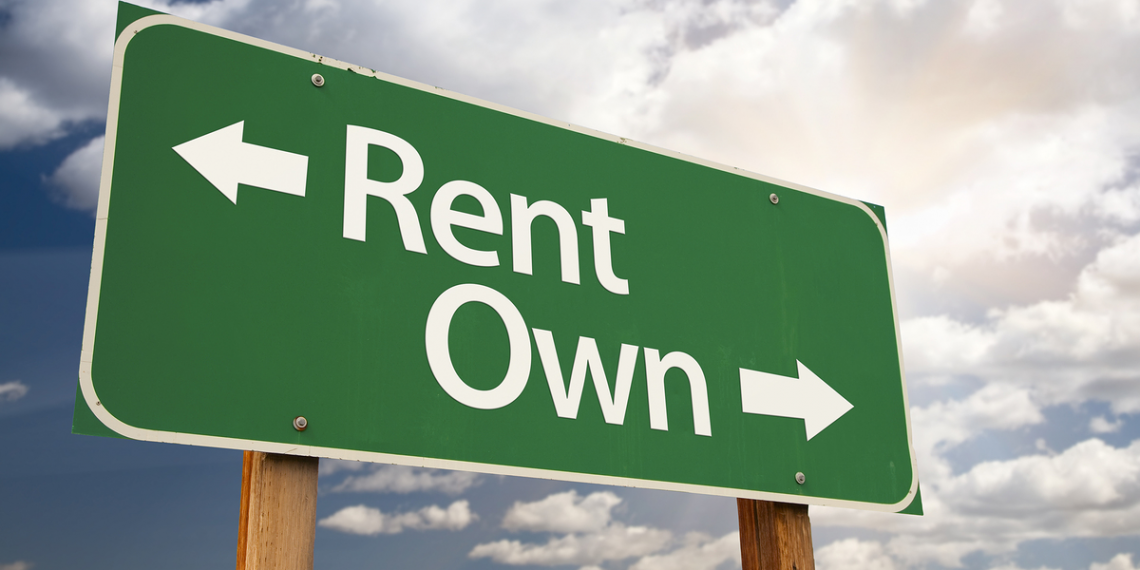Boston, the capital of Massachusetts, is an incredible city, famous for its historical significance, gorgeous architecture, and network of elite universities. Because of the high-quality of life that comes from living in Boston, on average, the city is 70% more expensive than the rest of the country.
So, if you want to live in Boston, you’re probably wondering: is it ultimately better to rent or own a home in Boston? The choice is difficult, but we’ll try to provide some useful details in order to help you make the best possible decision.
Price of Renting
Renting an apartment in Boston isn’t cheap. According to data, the average monthly rent in Boston is $2,613. Boston has the third most expensive real estate market in the country. On average, tenants in the city spend about $30,000 a year just on housing.
Price of Owning
The average home in the Boston area costs around $550,000. However, it doesn’t mean you can’t find a home for a lower price. This all depends on space, location, and many other factors that can raise or lower the price of a home in Boston. Don’t be surprised if you come across standard single family homes for over $750,000.
Factors to Consider When Deciding Whether to Rent of Buy
There are three major factors to keep in mind when choosing whether to rent or buy.
The include:
- Personal Budget: your salary and how much you’re willing to put towards rent
- Timeframe: how long you plan to rent for
- Apartment/House Down Payments: upfront fee when you rent an apartment or house. These are usually much higher when buying.
Is it ultimately better to rent or own a home in Boston? To answer this question, first consider these three factors. If you have a flexible budget, it may be worth it to buy. The down payment is also an important factor that plays an essential role in your decision. Finally, consider whether you plan to stay in the home for a long period of time. If there’s a possibility you’ll be moving again soon, it’s not suggested to buy.
The Upsides and Downsides of Buying
Owning a house or an apartment definitely has its pros and cons.
Let us take a look at some of them:
Pro: Freedom!
Having your own housing gives you freedom like never before. You have your own rules and won’t have to follow the regulations set by your landlord. You can decorate however you like, have a pet, invite as many guests as you want, or make your own repairs and renovation.. And all that – without ever having to ask for permission.
Con: Limited Flexibility
Once you purchase your own apartment or house, you are typically stuck to it, for at least a few years to make the investment worth it. You can’t simply move out if you decide you don’t like the place anymore or move to a new city without figuring out what to do with the property you own.
Pro: Predictable Payments
Owning a house is usually cheaper in the long-run than renting. When you own a home, you have predictable mortgage payments that arrive each month. If you buy the home in full, you don’t owe anything for the property and only have to pay for your utiliti
Con: Unexpected Expenses
Even though your monthly mortgage payments are predictable, as the owner, you will have to pay for all necessary repairs. Some of them may be unexpected and can prove to be a challenge.
The Upsides and Downsides of Renting
Renting an apartment also has its pros and cons.
Let’s look at a couple of them:
Con: Lack of Freedom
If you live in a rented place, you can’t do anything without the permission of the landlord. You can’t change the wall color or bathroom tiles. Some landlords don’t allow pets in their properties, others don’t tolerate parties. Your freedom will be quite limited when living in someone else’s property.
Pro: Flexibility
Because you don’t own the place where you live, you are not stuck with it forever. You are free to move out and find another apartment if you don’t like it anymore or if you get a job that moves you to a different city.
Pro: No Additional Expenses
As a tenant, you’re not responsible for any major repairs or renovations, and this means a lot fewer unexpected expenses. If you have troubles with the plumbing or the place has some structural troubles, you can sit back and relax as your landlord deals with it.
Con: Unexpected Fees
Typically, when you rent a place to live, you sign a contract for a certain period of time and the monthly rent is fixed for that period. However, tenants can never be absolutely sure that their rent won’t be raised without notice. Disagreements with landlords over fees is one of the worst parts of renting.
Another thing to consider when you try to decide if it is ultimately better to rent or buy a home in Boston is the price-to-rent ratio. The general rule is that a ratio under 15 shows that buying is better than renting. If the ratio is over 21, then renting is a better option. The prices of properties are also essential and it is recommended to research trends carefully before you decide what to do. You may also find it useful to consult an expert in the field who will provide important tips and valuable information.
Making a decision to buy your own place in Boston or to rent one is never easy. There are numerous variables that determine the best choice for you. These factors include your goals, your financial and professional stability, the prices of properties, your priorities and preferences. Consider carefully these factors as well the advantages and disadvantages of the both options. This way you will be able to find the most suitable answer and decide whether to rent or buy.


